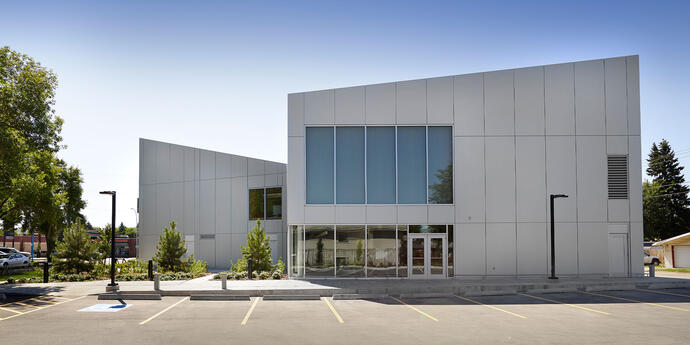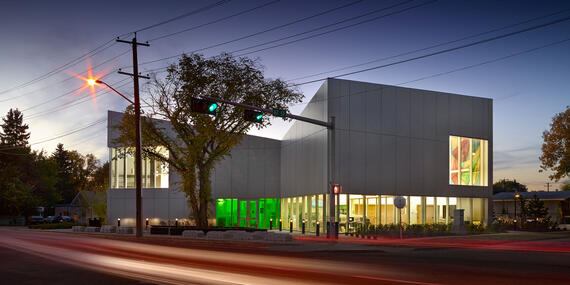
A modern vision.
The Highlands Branch Library began its operations in 1962, serving the northeast Edmonton, Highlands, Montrose, and Bellevue communities. More than half a century later, the original closed-concept building was dated and in dire need of a refresh. The vision for the new building was a contemporary and modern space. Big windows with an open-concept design were a priority, as the client wanted the space to be expressed a welcoming feel. Smith + Andersen provided mechanical services for the building helping to create a renewed community library.
A modern vision.
The Highlands Branch Library began its operations in 1962, serving the northeast Edmonton, Highlands, Montrose, and Bellevue communities. More than half a century later, the original closed-concept building was dated and in dire need of a refresh. The vision for the new building was a contemporary and modern space. Big windows with an open-concept design were a priority, as the client wanted the space to be expressed a welcoming feel. Smith + Andersen provided mechanical services for the building helping to create a renewed community library.

What’s new?
Since the renewal was completed in 2014, the library is now heated with condensing boilers and a cascading load system that circulates heated water. This system creates a high temperature drop between the incoming and outgoing water to and from the boilers which, in turn, utilizes the energy of combustion in a highly-efficient manner.
Energy efficiency was a priority throughout the course of this project. Our mechanical team designed energy efficient systems to create an indoor environment that meets LEED Silver certification requirements. The indoor environment is monitored and controlled using a direct digital control (DDC) building management system, which not only matches equipment output to the building demand but also optimizes efficiency.
